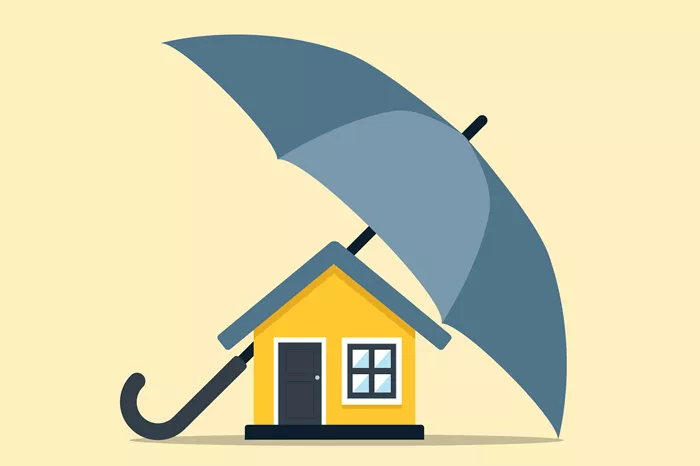Owning a home with a swimming pool can be a dream come true for many. Pools provide a space for relaxation, exercise, and family gatherings, enhancing the overall value of your property. However, they also introduce unique risks and responsibilities, particularly concerning insurance coverage.
In this article, we will explore how having a pool impacts your house insurance costs, what factors influence those costs, and how to find the best coverage for your needs. By the end, you will have a comprehensive understanding of how much house insurance with a pool might cost and the importance of adequate coverage.
Why Insurance Matters for Homes with Pools
Increased Liability Risks
Having a pool increases the likelihood of accidents, whether it be slips, falls, or drowning. This increased risk can lead to higher liability exposure for homeowners. If someone is injured on your property, you could be held responsible, making adequate insurance coverage crucial.
Home Value Considerations
A pool can enhance your home’s market value, but it can also affect your insurance rates. Insurers consider the value of the pool itself, along with the potential liabilities it brings. Thus, the type, size, and features of your pool can influence your overall insurance premium.
Local Regulations and Requirements
Some regions have specific regulations regarding pools, which may affect insurance policies. For example, local laws might require homeowners to install safety features like fencing or pool covers, and failure to comply could impact coverage and claims.
Factors Affecting House Insurance Costs with a Pool
Type of Pool
The type of pool you have can significantly affect your insurance costs. There are three main types of pools:
Above-Ground Pools: Generally less expensive to insure than in-ground pools, above-ground pools often come with lower liability risks due to their temporary nature. However, they still require coverage.
In-Ground Pools: These pools tend to increase insurance costs more than above-ground options due to their permanent structure and higher associated risks. The materials and features (e.g., a diving board or slide) can also influence the premium.
Hot Tubs and Spas: While not traditional pools, hot tubs and spas can also impact insurance rates. They carry similar risks, such as slips and drownings, and should be insured appropriately.
Pool Safety Features
Insurance companies often provide discounts for homeowners who invest in safety features. Installing items like:
Fencing: A secure fence can prevent unauthorized access to the pool and mitigate liability risks.
Pool Covers: Safety covers can reduce the chances of accidental drowning, making them an attractive feature for insurers.
Alarms: Installing alarms on gates or the pool itself can also lead to lower premiums, as they enhance safety.
See Also: Knowing Accidental Damage in Home Insurance: A Full Guide
Location and Climate
The geographical location of your home plays a significant role in determining insurance costs. Areas prone to natural disasters, such as hurricanes or floods, can lead to higher premiums. Additionally, regions with a higher incidence of swimming pool accidents may also see increased rates due to the elevated risk.
Homeowner’s Claims History
If you have a history of insurance claims related to your home or pool, insurers may consider you a higher risk, leading to increased premiums. Maintaining a clean claims history can help you secure lower rates.
Overall Property Value
The total value of your home, including the pool, influences insurance costs. Homes with higher replacement values typically carry higher premiums, as insurers need to account for potential repair or replacement costs.
Average Insurance Costs for Homes with Pools
General Estimates
While specific costs can vary widely based on the factors mentioned above, average homeowners insurance premiums generally fall between $800 and $2,500 per year. When a pool is added to the equation, homeowners can expect to see an increase of about 10% to 20% on their premiums.
Basic Coverage: For a home without a pool, you might pay around $800 annually.
With a Pool: If you add a pool, your premium could rise to between $880 and $960.
Factors That Could Influence Cost Variations
Location: In states like Florida or California, where pools are more common, rates might be more competitive compared to states with fewer pools.
Insurance Provider: Different insurers have varying policies and pricing structures. It’s wise to shop around for the best rates.
How to Find the Best Insurance Coverage for Your Pool
Shop Around
When searching for insurance, it’s essential to get quotes from multiple providers. Each company has its own underwriting criteria and risk assessment, meaning you might find significant variations in premium rates.
Ask About Discounts
Inquire about potential discounts for safety features. Insurers often reward homeowners who take steps to mitigate risks, which can help lower your premium.
Read Reviews and Research Providers
Take the time to research potential insurers. Read customer reviews, check their financial stability, and evaluate their claims process. A provider with a strong reputation for handling claims efficiently can save you a lot of stress in the future.
Consult an Insurance Agent
Consider working with an insurance agent who specializes in homeowners insurance. They can guide you through the process and help you understand which policies best meet your needs.
Understand Policy Limits and Coverage
Before signing on, ensure you understand the limits of your policy, including liability coverage. For homes with pools, consider increasing your liability coverage to at least $300,000 to adequately protect yourself from potential claims.
Conclusion
Having a swimming pool can enhance your property and lifestyle, but it also comes with additional responsibilities and costs, particularly regarding insurance. Understanding how much house insurance with a pool might cost and the factors that influence those costs is crucial for homeowners.
By taking proactive steps—such as installing safety features, comparing quotes, and understanding your policy—you can ensure that you have the right coverage to protect yourself, your family, and your investment. With the right preparation, you can enjoy your pool with peace of mind, knowing that you are adequately covered in case of an accident or incident.
You Might Be Interested In





















